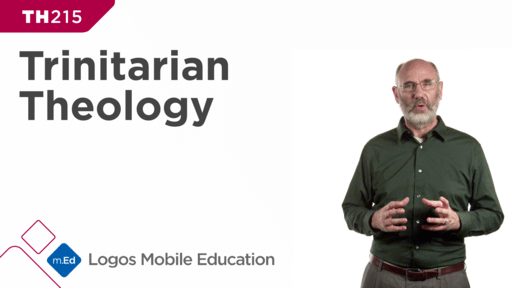TH215 Trinitarian Theology
Sign in to rateTrinitarian Theology (TH215) begins by looking at how the doctrine of the Trinity is found in and rooted in the NT. It looks at different ways the NT describes the Trinity. It then briefly surveys the history of Trinitarian theology, looking specifically at some early heresies that helped focus the church’s theology of the trinity. The course discusses important categories of Trinitarian theology, describes the difference between the ontological and the economic Trinity, and develops the concept of perichoresis—the mutual indwelling of the Father, Son, and Spirit in the life of God.
